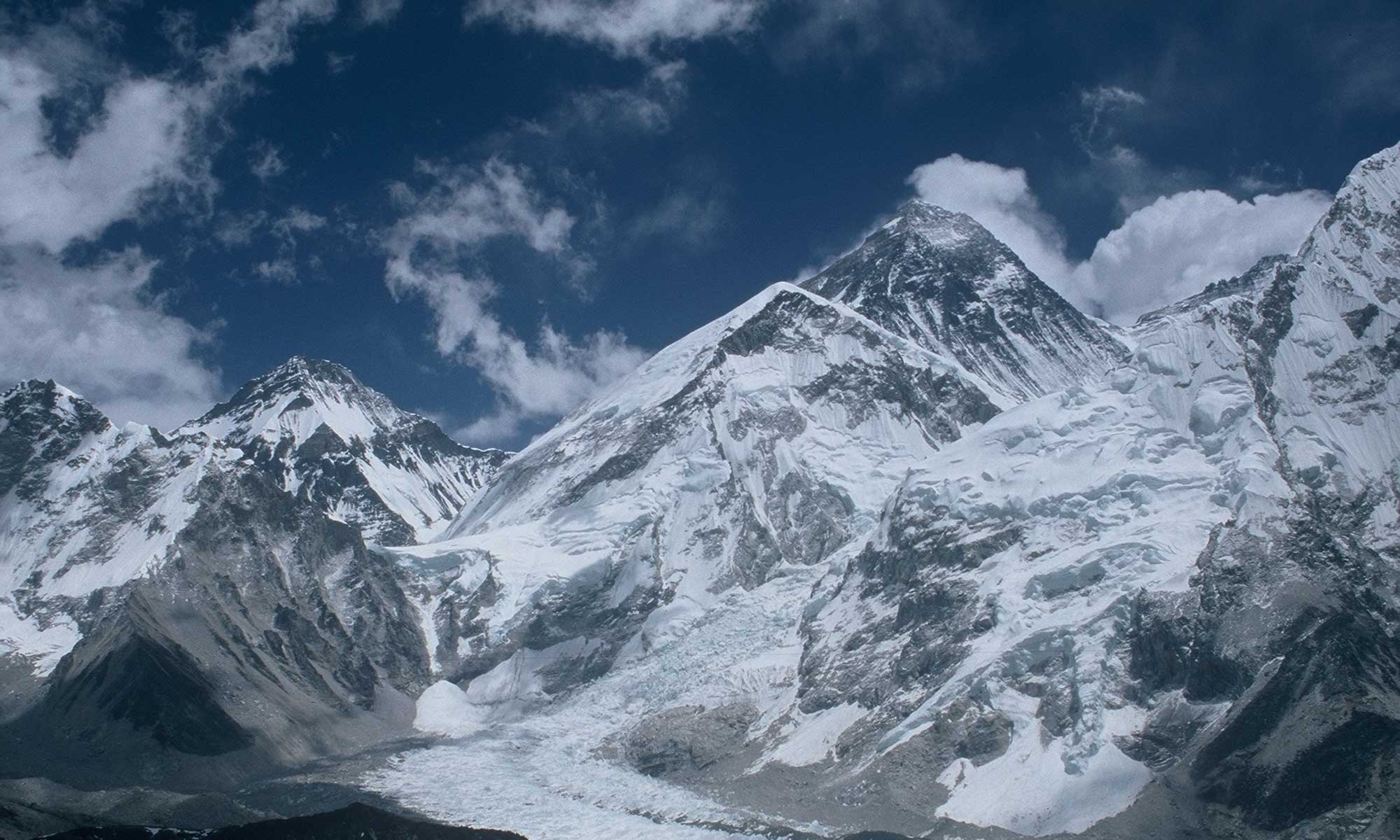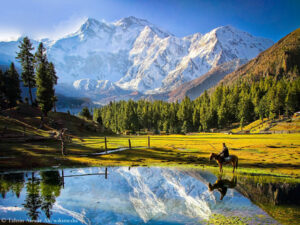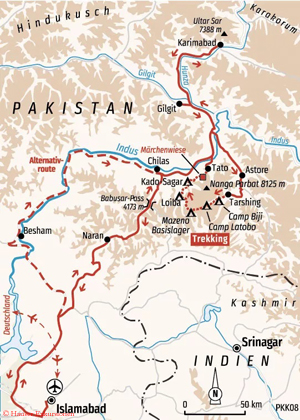Once upon a time. The Fairy Meadows near Nanga Parbat has lost its fairy-tale quality. There are now 25 hotels on the Fairymeadow and there are so many people that the peace is over. Individuals incapable of walking are carried up on horses with their mobile phones in their hands, sometimes more than 600 in one day,” Michael Beek writes on Facebook after returning from one of his many trips to Pakistan. “Plastic waste is everywhere along the path, drinking bottles are simply thrown down into the Rakhiot River, nobody cares. It makes me sad. “
Expeditions, circumnavigations, crossing
If Michael Beek is horrified, all alarm bells should be ringing in Pakistan. Few Westerners are likely to know the mountains in the north of the country as well as he does; Beek loves the region. For more than forty years, the German, born in 1955, has spent several months there every year. Three times – in 1981, 1983 and 2001 – expeditions have taken him to the Rupal side of the 8,125-meter-high Nanga Parbat, in each case via the so-called Schell route. In 1983 and 2001 Michael leads the ventures. His highest point reached remains Camp 3 on the Southwest Ridge at about 7100 meters.
But Beek is better known for his trekking adventures. He crossed the Karakorum a total of five times, sometimes on routes that no one before him had ever attempted. In 1985, he circumnavigated Nanga Parbat via the Mazeno Pass for the first time with a small group; today, the tour is one of the trekking classics in Pakistan. In 1992, Beek flies a paraglider along the South Face of Nanga Parbat. In 1996, the first edition of his Pakistan trekking guidebook is published. It is probably not missing from any bookshelf of adventure travelers from the German-speaking world who have been or are drawn to Pakistan – myself included.
“Everything has changed”
Nanga Parbat, Beek now writes on Facebook, is “the mountain that has dominated my life since 1981. A wonderful natural paradise such as is rarely found on our planet. I know every side valley, every pass and many mountain farmers without whose help the tourists could not manage a trek. I have often walked around this mountain and been happy. But in the last 5 years everything has changed.”
Michael points out that there is now also a road leading up to the Biji campsite (“Herrligkoffer Camp” – named after the famous, also controversial, German expedition leader Karl Maria Herrligkoffer) in the Rupal Valley, “where the rich drive up in their heavy off-road vehicles to distribute their rubbish. Everything is full of plastic waste and the spring river in the base camp is filthy. A hotel is already planned there.” Next year, he writes, a road to the Latobo campsite is to be built “so that motorcyclists can also reach the world’s highest rock and ice wall.”
Government must intervene
Beek is outraged: “What is happening there in Nanga Parbat National Park? The authorities don’t care about anything. No rangers, no waste disposal, nothing. Everyone does what they want and nature is irrevocably destroyed. I am just appalled and angry about so much ignorance and stupidity.”
This problem is not limited to Nanga Parbat, Michael writes to me: “What has been happening in the Karakoram in recent years is hard to bear. If the government does not intervene, this will continue ruthlessly. Nanga Parbat, Fairy Meadows, Concordia (glacier junction near K2) and Karimabad (town in Hunza Valley) have become hotspots. If the government doesn’t do something soon, more and more will be destroyed and then there will be no turning back.”
The legendary Hermann Buhl, who succeeded in the first ascent of Nanga Parbat in 1953, still wrote in his expedition diary at that time: “First view to Nanga. Fairy Meadows really fairy-tale beautiful.” That was once upon a time.
Update 4 August: Michael’s message has apparently been received. The regional administration of Gilgit-Baltistan sent out staff to collect garbage from the roadside in the direction of Fairy Meadows. The action is to be continued, also at Fairy Meadows itself. At least it’s a start. Let’s see how sustainable it is.






Assalamualikum. Thank you for your kind information. Yes it’s really true, plastic bottles and rubbish are v bad for our beautiful Pakistan.
Last year August 2021 we 7 Friends go for Fairy Meadows Nanga Barbat, we stay 1 night in Chilas near Raikot bridge, no clean water, no clean hotels, not good and healthy foods are available here!!
Next Morning we booked a Jeep for Tatto Valley, but unfortunately land sliding on these days from Raikot to Tattoo valley route 3 times route close, we walk almost 2/3 hours in hot summer, without water and no one Jeep owners tell us to take water with us. Jeep owners tells us that road are closed 3 times but he says it’s no so far only 10 to 20 minutes you find another Jeep, then 2nd Jeep then 3rd Jeep. But it’s only 2 Jeeps and 2/3 hours trekking without water. He just talk about money no one care about us. It’s v though or sad. Alhumdulillah we reached tattoo valley but very tough time.
No government employee or other person to guide us..